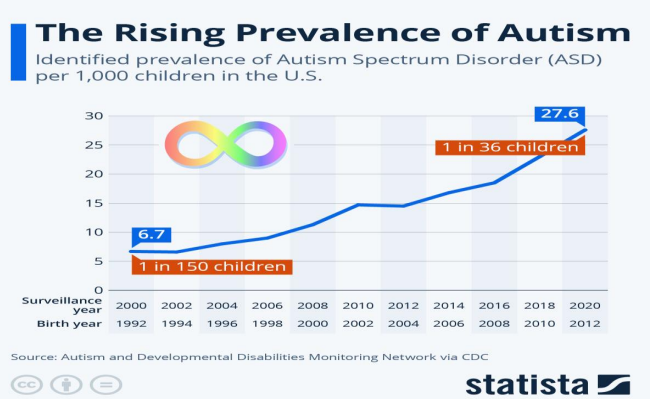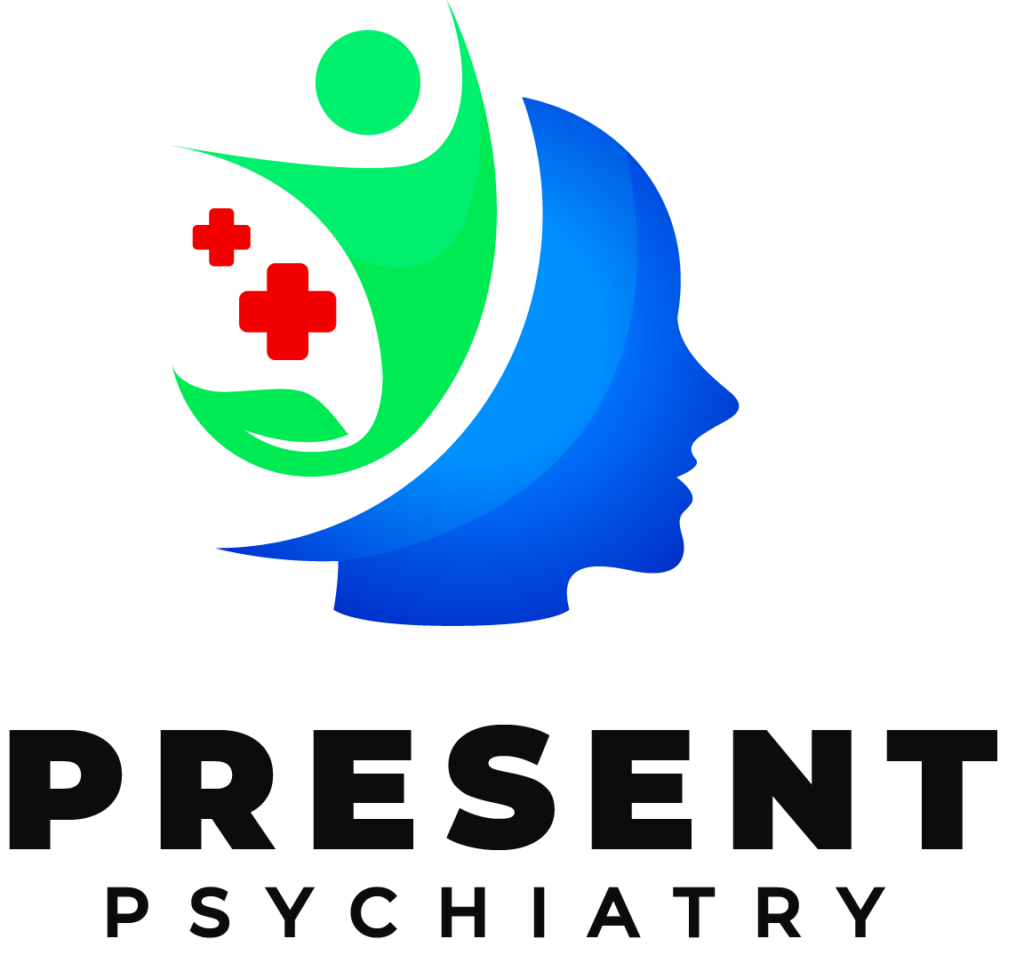Autism Spectrum Disorder (ASD) is a complex neurodevelopmental condition that affects communication, behavior, and social interaction. It is called a “spectrum” because it manifests in a wide range of symptoms and severity, varying from mild challenges to more significant impairments. Individuals with autism may have unique abilities or face various challenges, depending on where they fall on the spectrum. Understanding ASD is crucial to fostering a supportive environment for those affected.
Prevalence and Age Distribution

Autism affects individuals of all ages, though it is typically diagnosed in childhood. According to the CDC, about 1 in 36 children in the U.S. is diagnosed with ASD. The prevalence of autism is seen across all age groups, with children being the most commonly diagnosed. Research shows that autism affects approximately 2.2% of adults, and while older individuals may also have ASD, it is often underdiagnosed in older generations. Young children, particularly boys, are four times more likely to be diagnosed than girls.
Causes and Risk Factors
The exact cause of Autism Spectrum Disorder is still unknown, though research suggests it may be linked to a combination of genetic and environmental factors. Several risk factors can contribute to the development of autism, such as:
- Genetic predisposition: Studies show that certain genetic mutations and family
history may increase the likelihood of ASD. - Parental age: Older parental age at the time of conception has been associated with
a higher risk of having a child with autism. - Environmental factors: Prenatal exposure to toxins, infections, or complications
during pregnancy may also play a role.
Symptoms of Autism Spectrum Disorder
ASD presents in early childhood, typically before the age of three. The symptoms may vary, but they generally fall into three key categories: social communication challenges, repetitive behaviors, and restricted interests.
- Social communication difficulties: Individuals with ASD may struggle with understanding social cues, maintaining eye contact, or engaging in typical conversations. They may also have delayed speech or use language in unusual ways.
- Repetitive behaviors: Repetitive movements (e.g., hand-flapping, rocking), following specific routines, and intense focus on specific interests are common characteristics.
- Sensory sensitivity: Many individuals with autism experience heightened sensitivity to sensory inputs such as light, sound, or touch, which can lead to overstimulation.
Example
Let’s take the example of a five-year-old boy diagnosed with ASD. He may have difficulty making eye contact, speaks very few words, and often repeats the same phrase over and over. His parents notice he avoids playing with other children and becomes upset when his daily routine is disrupted. Over time, with early intervention, including speech therapy and behavioral support, his ability to communicate improves, and he gradually learns to adapt to small changes in his environment.


Diagnosis and Early Detection
Diagnosing ASD involves a thorough evaluation by a healthcare professional, usually a developmental pediatrician, neurologist, or psychologist. There is no medical test, such as a blood test, to diagnose autism. Instead, the diagnosis is based on the child’s behavior and developmental history. The Modified Checklist for Autism in Toddlers (M-CHAT) and other screening tools are commonly used to identify early signs. Early detection and intervention are crucial in improving outcomes for children with autism, as early therapy can address developmental delays.
Treatment and Support
There is no cure for ASD, but various interventions can help manage symptoms and improve the quality of life for individuals with autism. Treatments are tailored to each person’s needs and may include:
- Behavioral therapy: Applied Behavior Analysis (ABA) is a widely recognized therapy that helps improve social, communication, and learning skills through positive reinforcement.
- Speech and occupational therapy: These therapies address communication difficulties and help individuals with daily living skills and motor functions.
- Educational support: Individualized Education Programs (IEPs) are often developed to support children with autism in schools.
At Present Psychiatry, we emphasize a holistic approach to mental health management, offering personalized treatment plans that integrate behavioral therapy, medication, and family support to help individuals on the autism spectrum thrive. Our experienced psychiatric professionals are here to guide families and provide the best care possible.
Living with Autism
Many individuals with ASD live fulfilling lives and contribute to society in meaningful ways. Some may require lifelong support, while others may live independently, attend college, and maintain jobs. The key is providing access to the appropriate resources, understanding, and patience.
Awareness and Advocacy
Autism awareness has grown significantly in recent years, leading to better understanding and acceptance. Campaigns like World Autism Awareness Day celebrated on April 2nd, aim to promote inclusivity and highlight the importance of early diagnosis and intervention. Advocacy for individuals with autism focuses on ensuring access to healthcare, education, and employment opportunities that cater to their unique needs.
Conclusion
Autism Spectrum Disorder is a multifaceted condition that requires a holistic approach to care. With early diagnosis, tailored therapies, and support from professionals like those at Present Psychiatry, individuals with autism can thrive. At Present Psychiatry, we are committed to helping individuals with autism and their families navigate the challenges of the disorder. If you or someone you know is seeking help for autism or a related condition, contact Present Psychiatry today to schedule a consultation. Together, we can create a supportive, understanding environment that allows individuals with ASD to reach their full potential.
WE STRIVE HARD AND PROMISE TO DELIVER
- 5600 NW Central Dr Suite 280, Houston, TX 77092, United States
- +1 832-552-1578
- inquire@presentpsychiatry.com



